A question not answered in a few words. I will try to give you some guidelines on which I write my own reviews, and which I will personally also look at when seeing new reviews that should either be featured, ejected or be left alone.

Not just a bunch of opinions
Well, contrary to popular beliefs, a review is NOT just a collection of opinions. Opinions are, of course pretty important, but can be pretty void in the outcome. Any idiot can think something is good or bad. I don't doubt there is stuff out there which I think it sucks while you think it's awesome, and vice versa. There are always as many opinions as there are people and there is never a 100% score on love or hate on a project. Opinions are as a rule always subjective. Objectivity is what reviewing is about. A review must be informative. Just ranting some opinions is not informative... at least not about the project, but merely informative what you think about it. The project you review is more important than your opinion. Sounds harsh, but that's the way it goes.

The project's "metadata"
Before you start on your review, make sure you start with the game's title. And make sure you include a link to the project and to the developers at either the start or the end of the review. You'd be surprised how easily this important step is forgotten by beginning reviewers.

Begin with a proper introduction
Never start with giving opinions right away. First give a kind of introduction. What is it that you are about to review. A game? A utility? A book? A movie? And what kind of game? An RPG? A platformer? A puzzle game? An FPS? The style of the game? Horror? Cute? Fantasy? Science Fiction? And in the case of a utility, what kind of utility? A browser? A game creation tool? A flash/HTML5/WASM wrapper?
When you are reviewing stuff that is strongly relying on a story, like a (visual) novel, a point-and-click-adventure, a jRPG, or any sort of thing where a story is told tells us as much as you can about the story without spoiling it. For example, if you'd review my Secrets of Dyrt game, there is no pain in telling that Eric is being hunted down by the Order of Onyx, but you should NOT tell WHY the Order of Onyx is hunting down Eric, since the revelation of that is a very major plot twist people don't want to know until they reached the point in the game where this is actually being revealed. Spoilers can work devastating for the project you review no matter how good it is. If a spoiler is really unavoidable (which should normally for a review NEVER be the case) be glad that Game Jolt supports "spoiler bars" which can hide spoilers.

Be fully aware of what the developer was planning to do!
Seems obvious, but really, I've seen MANY MANY very awful reviewers neglecting this step leading to reviews that are either insulting, poorly written, or even exposing the reviewing for a first rate MORON!
I've once seen a reviewer rant on a novel being "too childish", when the author did have a young audience in mind from the start. Oops! No wonder the writing style was a little bit "childish", eh? Would be a bad thing if it wasn't, right? Somebody thought he hurt "my pride" by bashing down a game of mine, clearly neglecting that the game in question (this one) was never a serious game project, but only a quick demonstration of what an experimental programming language could produce. If he had bothered to read the game's description and the only devlog entry it has, he'd have known that. Games solely written to demonstrate programming languages are never really great, as that was never their purpose. Just showing what the language can do, is the only thing the game has to do, and that was what it did.
We can also put this further. If you state in your review a game was "rushed", and the description says it was written for the Ludum Dare or another kind of game jam, it is clear why the game is "rushed" as jams normally have a pretty tight time limit in which a game must be finished from the start to a working copy. And if somebody took on the challenge to write a game for DOS (using DOSBox) then you cannot expect over 2 million colors, hi-resolution 3D graphics and over 3 gigabytes worth of high quality orchestra music. And when the developer deliberately chose to write a game in retro-style, don't rant that the game should be 3D as that is the "standard" these days (yeah, I really saw a review like that, which was quite, shocking).
One last note (should go without saying), also take good note of HOW OLD the product you are reviewing is. Amateur games written in the early 1980s will NOT compare to AAA games published today. That should be obvious, but some people easily overlook this cold hard fact. Take the technology in mind that the developer had at their disposal.
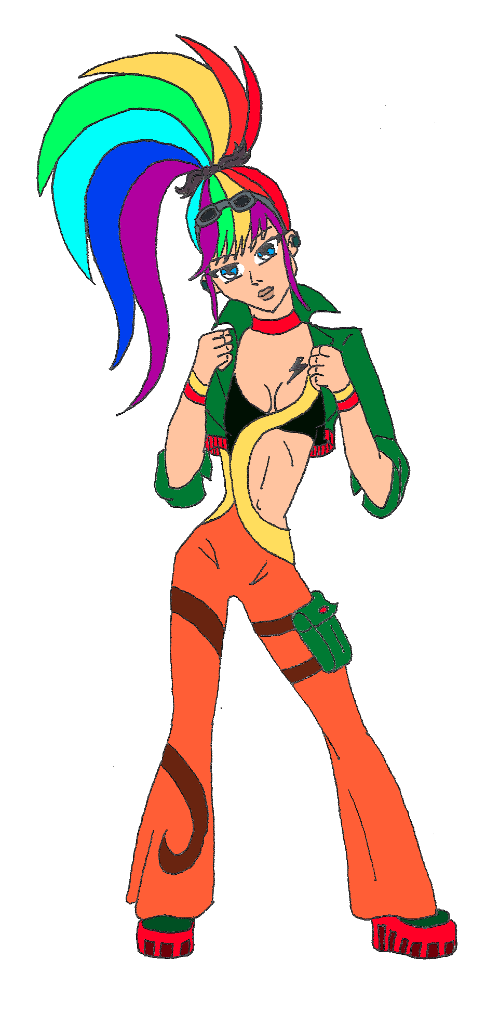
Next step: The actual review!
Now like I said, a review is not about opinions, but this is the part where the opinions come to play a role. Break the project down in little pieces and comment everything piece by piece. Do the graphics fit the game? Was the choice for retro graphics the right choice? Are the graphics too dark for a cute game? Or to bright for a horror game? Is the story good? If so why? Does it have good character development? Some unexpected plot twists? (Of course, beware of spoilers here). Is the music well-chosen. That sort of thing.
And very important, and often underestimated is... The UI! It's really important you review a projects UI (User Interface), as this is something that makes and breaks software. And it's not something a developer should take for granted. If you imagine that Microsoft if one of the biggest offenders out there when it comes to UIs that are beyond any level of terrible (one of the reasons I recommend OpenOffice/LibreOffice above Microsoft Office, really. Actually a more important reason than OpenOffice being free and Microsoft Office being overpriced), you can imagine that designing a good UI is hard. So as a reviewer you should be strict, yet just, about the project's UI. Is the UI logical? Well-Organized. Not more complicated as it has to be? Action games normally don't have much of a UI, but RPG games strongly rely on menus and stuff and then the risk of a messed up UI is very high. Utilities, of course, rely completely on a UI, so there it's even more important you put attention to that in your review.
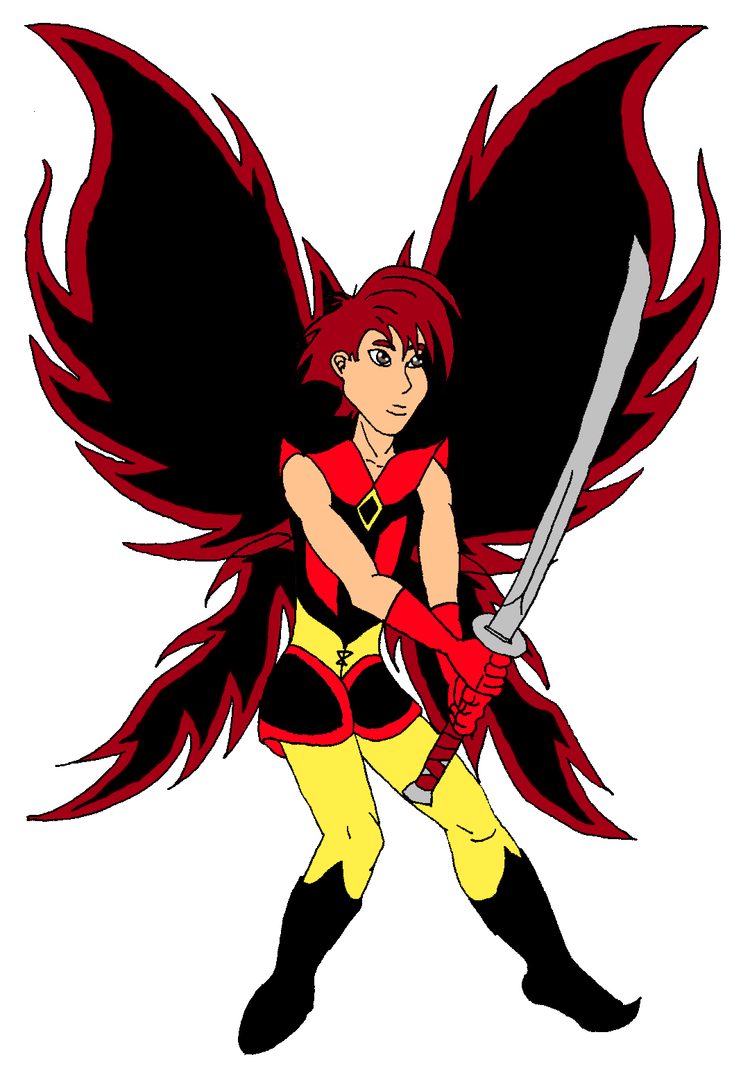
Price vs Quality evaluation
When handling paid games/utilities it's important to be fair on this. Don't bash something down because they charge money at all. Any developer has the right to do so. Does the price warrant what you get, though? I think that $100 for a 'game' that only prints "Hello World" onto your screen is clearly overpriced. And sometimes some games are very cheap where the developers could definitely have charged more. Of course, when evaluating a price motivate well why you think something is too cheap or expensive or just properly priced. Some people do make a living out of game development and where money is involved you can't be too careful. If you are not sure if you can appraise the value of a project right, it's better you refrain from doing so.
Of course, when you review paid stuff based on a demo, be fair about that in your review. Mention it in your review. It goes without saying that free demos of paid stuff lack loads of features the paid stuff has.
Note on free review copies
It is not uncommon that reviewers often get the stuff they review for free, especially in the professional reviewing scene. I highly recommend not to buy stuff solely for reviewing purposes, as that can be pretty costly in the longer run. If you were planning to purchase it anyway, then no problem. Most developers will want to see your credits as a reviewer before lending you free copies for review, so perhaps it's best to review free stuff only first, and move on later to the paid stuff. Reviews can be essential for developers as well-written reviews can help their sales, but this can never be an excuse to write positive reviews due to a free copy only. You must always remain objective.
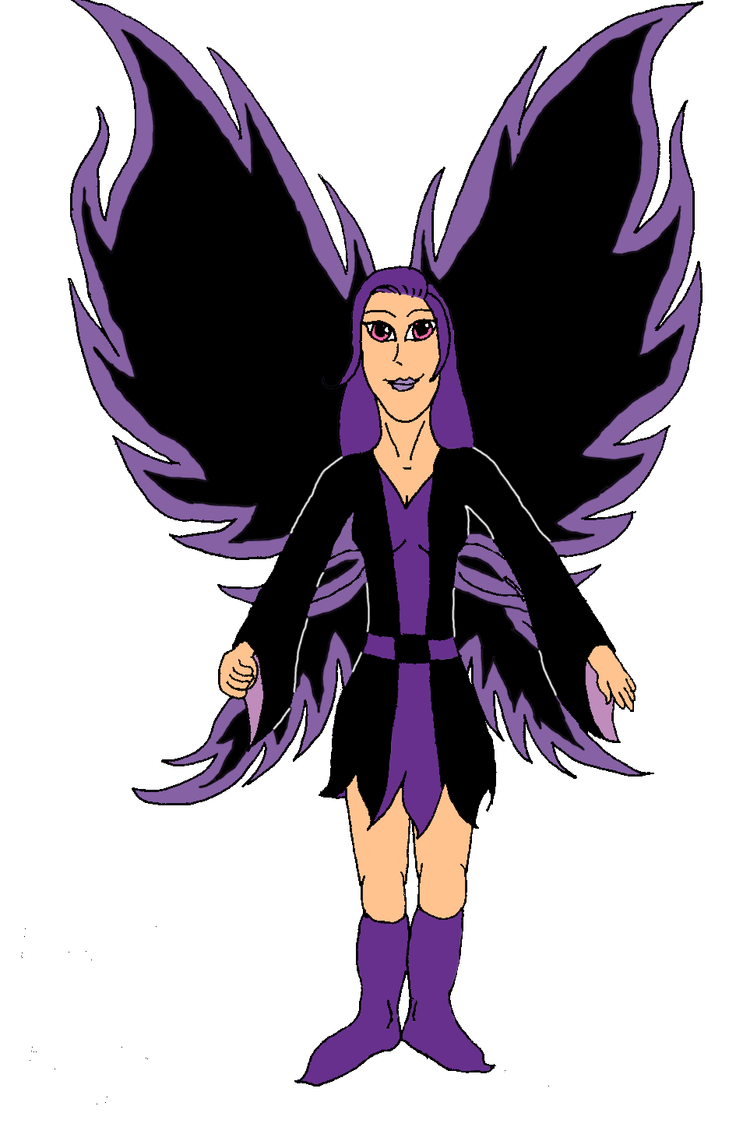
Ratings
If you've read my reviews, you may have seen that I rarely place ratings. In fact, mostly I never rate at all. You are however free to put in ratings and I'll leave it up to you to use a 1/5 scale or a 1/10 scale (or a 1/100 scale), as those are the most common scales. I chose not to rate as ratings rarely provide any useful information. If you decide to rate though, make it clear what scale you use, and motivate your ratings properly, and that is harder than you think. I can easily say 6/10 for the graphics, but what does that tell you? Well? Ratings are also often very debatable... I am not very fond of them, and I recommend not using ratings, but if you believe in ratings, by all means use them, but be fair, motivate your ratings well, and be clear on how you rate. Especially when ratings are not average scores... like 1/10 or 2/10, I want to see a very proper motivation on why you rated like that.

With a great power comes a great responsibility
This is an aspect of reviewing you may NEVER underestimate! When you review through a channel where many people come to read your reviews, whatever you write can, and if you really have a great popularity, even WILL affect if people will download or purchase a product. Therefore information and facts are more important than your opinion for starters, so people can make their own choices, you should be as neutral in your approach as possible, and only bash down a product if it actually is terrible and be very clear on why it is terrible. Negative reviews did already cause bankruptcies in the past. If your review causes somebody to get really bad download numbers/sales, than yes, you are responsible for that. The pen is mightier than the sword. Don't underestimate your power, and even more important DO NOT ABUSE IT!
Should I find out you are abusing your power as a reviewer, I will eject all your reviews from this community and ban you from this community, and in extreme cases I will even notify the Game Jolt staff. Bashing down other people's work just because you can is NOT cool!
If you think a review is really abusive then notify me, and in extreme cases, if you think a review is even a violation of the Game Jolt TOS, don't hesitate, to use the report feature so the Game Jolt Staff will know. Be however aware of the fact that not all negative reviews are abusive. Sometimes a reviewer DOES have very good reasons to bash down a project completely to the ground, and if the reviewer clearly had good reasons to do so, and if that fully shows in the review, I *will* let it be. Also note that some reviews are very hard to judge. Flame wars just because of a negative review that is still well-written and objective will just be reported to the Game Jolt staff, and can also lead to bans from this community (if not from this site as a whole, depending on how the GJ staff judges it).

A few misconceptions a reviewer must be aware of:
Don't put too much importance on how a game is created. A game written in C/C++ is not per definition better than a game written in Scratch. It's true that C/C++ offer more possibilities. You should also take the possibilities of the used language in mind. In most cases it's the result that counts, not the manner in which it was created.
Be careful on judging "stolen assets". This is never a bad thing UNLESS copyrights are being violated. A game using their own composer is not per definition more professional than a game using music written by Kevin McLeod or similar CC artist. McLeod released his music for this purpose under a CC license after all, and if nobody would use it, it would not be good for his reputation, either. When using music from an artist who doesn't use an free license and you can prove it's without authorization we got a point. This is however not the job of a reviewer to bash down completely, but making notes of that, can be useful. If you believe something should be taken down because of copyright infringement, don't review it, but notify the Game Jolt staff in stead. Also note that using the free Unity assets *is* allowed even in paid stuff. I know this because I was confronted with this discussion a lot during my time as a moderator, and we had to do some research on this and found the official statement on Unity.
There is NO OBLIGATION for a game to be 3D and 3D is not better than 2D. Both have their charm, and a developer is free to choose what they believe suits their project best.
Games containing malware should NOT be reviewed. They should be reported so the Game Jolt staff can take action. There is no need to bring these accusations in public.

Bugs
It is possible you review a game/utility that has a high crap-load of bugs. When you are playing a game that is still in development, you should note this in your review, as bugs are only to be expected there. When it handles a fully stable release, perhaps you can better report the bugs to the developers first and see how they respond. And be polite in your bug reports... that should go without saying. When you mention bugs in your review be aware that people may not always check the date in which the review was written (they should, but they never do) and it would be terrible if a project was ignored because of bugs that have already been fixed. It may therefore be noted that if you note bugs in your review, you may be requested by the developer to update your review once the bug is fixed. Adding something as [this has been fixed by now] if you don't feel like rewriting the entire review or even an entire paragraph, will also do a great deal.

Refrain from profanity and foul language
Your review will NOT look more impressing when you use foul language. It will only make your review look amateur and hard to take seriously. Even when you did state everything that is wrong correctly.
Of course, the opposite is also true. Using an overload of superlatives about how awesome something is, will also make people wonder if the developer paid you for a good review (I will ban you from this community if I can prove you are, btw. I guess that's obvious), and that will also lead to people not taking your review seriously.

Nothing wrong with humor, but don't overdo it
A joke is good, but don't overdo it. For example I once read a review about the movie "Titanic" and it said (roughly translated from Dutch):
And then, when the ship eventually begins to sink (oh, we aren't spoiling too much of the story now, are we?)
Of course, that wasn't much of a spoiler as any movie taking place on Titanic would eventually show the ship sinking (as that is what made the Titanic famous to this very day to begin with), but in a fictional plot or a page of history less famous, this could be a spoiler. So nice joke. Humor makes heavy reading a bit lighter. However too many jokes can kill the purpose of a review. Know when to joke, and make sure people will easily recognize the joke, and don't overdo it.

Mind your spelling/grammar
I hate being a grammar nazi. We all make spelling grammar errors. No point being too strict on that. In a review though, it's important that you are not making too many spelling errors. And then writing "u" in stead of "you" is deemed a spelling error. Also make sure you know when to write "you're" and "your", be a bit mindful of uppercase and lowercase, usage of apostrophes, commas, periods and such. You don't have to be 100% error free, only an idiot would demand it, but too many spelling errors can make a review harder to read, and a review does not just reflect the product you review, but also your image as a person and how seriously you take things, and thus how seriously people can take your review.
Also a few big "no-no"s
Leetspeak. Don't ever use it in a review
ALL CAPS!
Internet acronyms, such as btw, cu l8er, etc.
Deliberately misspelled words such as "boi", and "wae" etc. The excuse that they are memes (they are not) is not valid in a review. (Using memes in a review is overall not a very wise thing to do unless you KNOW what you are doing).
A high crap-load of smileys 😎😜🤣😁😉😆. Makes a review harder to read, and makes it look unprofessional. If you know what you are doing you can put in a few, but only with moderation. Mostly it's better not to use them at all.
And one last rule in reviewing style. Always refer to the developers in 3rd person. You main target is the audience and not the developer, even though developers will use your review as feedback. When you write quick personal feedback using 2nd person is fine, but in a review, it's not.
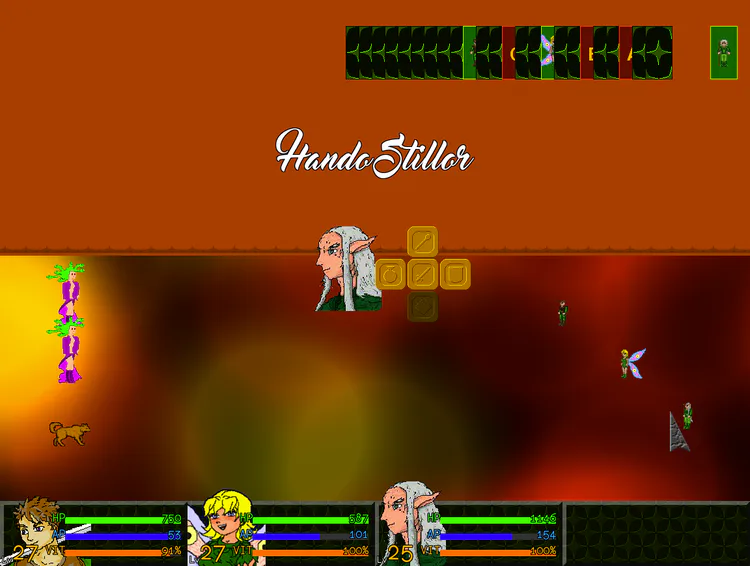
Screenshots
Screenshots, and sometimes some promo/concept art does make a review better. A picture is worth a thousand words, so the saying goes. Screenshots therefore play a very important role in providing more information to the readers of your reviews. Most people are more visually understanding that by words. Be however mindful that reviews in text are not fully visual presentations, so use screenshots with moderation. Too many screenshots will also make your review harder to read. A review without screenshots however will also not do. Also be careful with your screenshots, as some shots could reveal spoilers, and you don't want that.

"Final thought" section.
At the end of your review, a few "final thought" words are very important. Although not much information is written here, it ends the review properly so the reader does not have the feeling you just "broke the thing off". You don't have to caption it as "final thought". When well-written a reader, knows you are now having a final thought. Bring up a few highlights of your conclusions/opinions up, and maybe name some kind of people you'd think should use this tool/play this this game. The final line could easily be: "If you love classic style jRPG, this game is a must-have for your collection"... or something like that, but before you write that, always name very extremely briefly a few highlights of your review. Proper closing words, can make or break a review, so don't think to lightly about this.
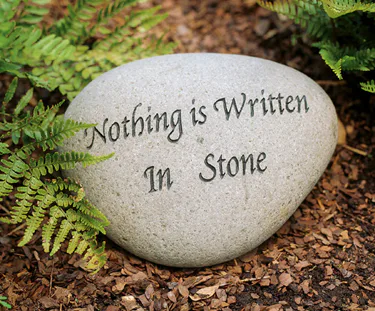
Now very important is that none of the "rules" I mentioned above are fully written in stone (except for my notices about abuse). Every reviewer has their own reviewing style. It may very well be possible that somebody may write a very good essay about reviewing which contradicts a few of my points. It's even possible some reviews I feature may not even follow these guidelines. (Some of my own may not even follow them all. As Mr. Scott said: on paper you are always more careful than you are for real). However, if you are new to reviewing, I recommend to take these guidelines to heart.
(Also if I feature a review of your it does not mean I automatically agree. It only means your review was informative and detailed and written in a style I would like to see).
NOTE: This document may be modified over time, to correct some errors, or mention some newer views I have (or to put in stuff I may have forgotten to mention).
Happy reviewing! 😎




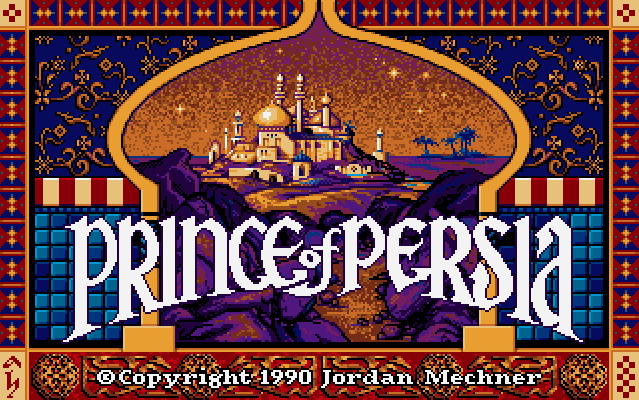

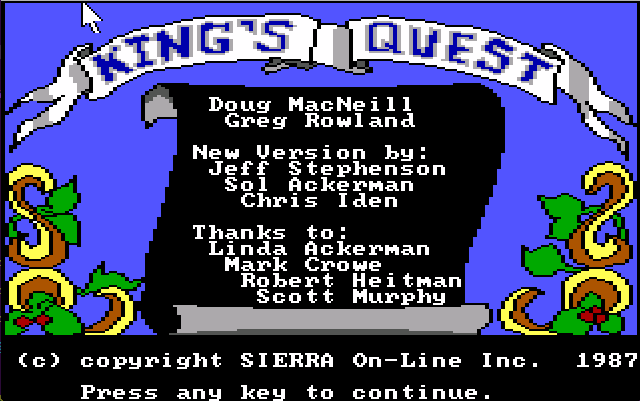
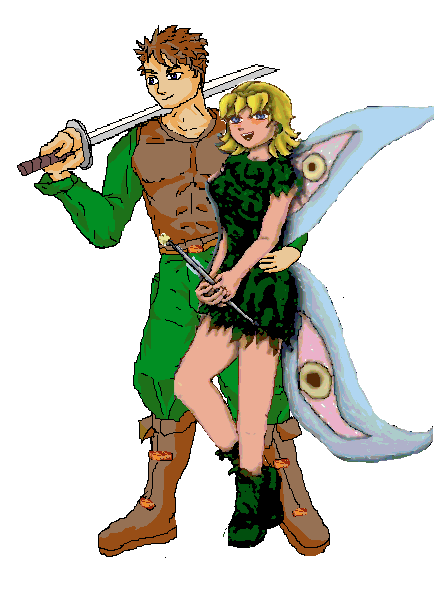

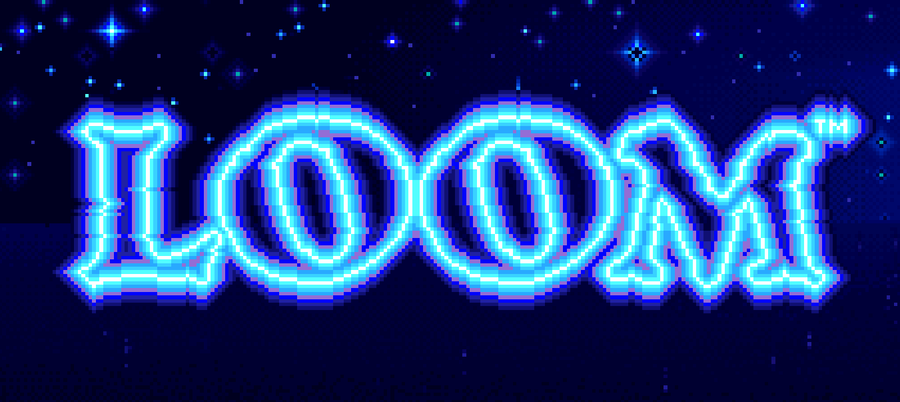

6 comments